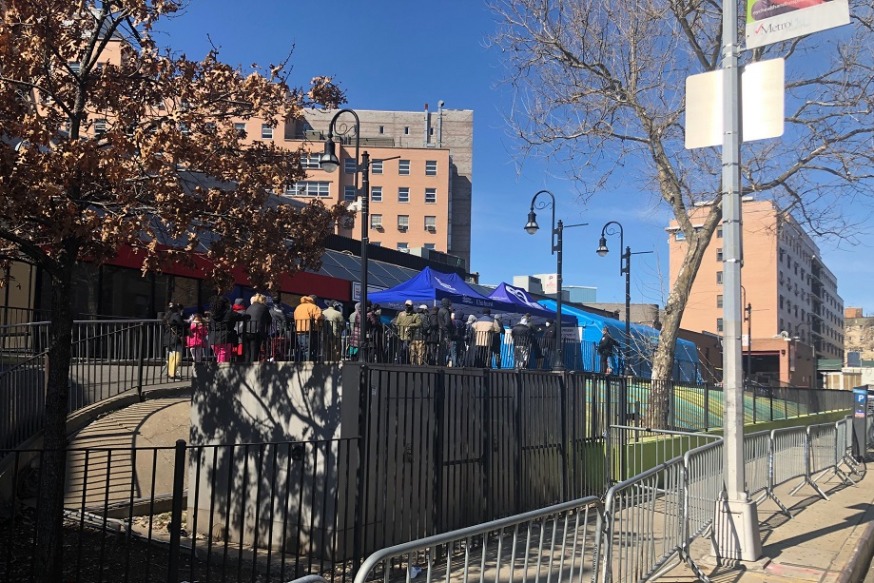
Elmhurst hospital and its surrounding neighborhoods were deemed the epicenter of the pandemic soon after COVID-19 broke out in NYC (QueensPost)
Oct. 19, 2021 By Max Parrott
More than a year after communities of color in Queens bore some of the most deadly impacts of the COVID-19 pandemic, the New York City Board of Health has passed a resolution that declares racism a public health crisis.
The resolution begins by recognizing the history “of structural racism impacting services and care across all institutions within our society,” and from there calls for the creation of a list of studies, working groups, internal reviews and collaborations with other city agencies and community groups.
“To build a healthier New York City, we must confront racism as a public health crisis,” said city Health Commissioner Dave Chokshi in a statement. “The COVID-19 pandemic magnified inequities, leading to suffering disproportionately borne by communities of color in our City and across our nation. But these inequities are not inevitable.”
The announcement makes the city the latest in more than 200 government institutions that have made similar declarations of racism as a public health crisis across the U.S.
In Queens, the pandemic exposed the dangers of healthcare divestment. A shortage of beds left the eight remaining hospitals in the borough overburdened at the peak of the pandemic. After four hospitals closed between 2008 and 2012, the borough was left with the least number of beds per capita in the city as it became the epicenter of the city’s viral spread.
“The COVID-19 pandemic exposed what we’ve been saying for years about the disparity in healthcare that exists in our borough,” said Queens Borough President Donovan Richards said after his election victory last year.
Though the language of the resolution framed it as a response to the disproportionately high rates of COVID-19 infection and death suffered by Black, indigenous and people of color, its scope also pertains to a broad span of effects from disproportionate healthcare services, including HIV, maternal and infant mortality mental health conditions.
It charges the city Health Department with researching historical examples where its divested resources from or underinvested in health programs and responding by participating “in a truth and reconciliation process with communities harmed by these actions when possible.”
Additionally, it encourages DOH to collaborate with other city agencies to improve its data collection regarding racial inequities and makes assessments of structural racism within policies, plans and budgets. Outside city government, the resolution calls on the DOH to consult with relevant community organizations to “perform an anti-racism review of the NYC Health Code.”
“I commend the New York City Board of Health for joining some 200 jurisdictions and institutions across the country to declare racism a public health crisis,” said Dr. Mary T. Bassett, the former city Heath Commissioner and incoming head of the state DOH, in a statement.
“Crucially, this call places centrality on complete and timely data and community collaboration. To assess the extent of the harm of racism to health and longevity is key to long overdue redress. I urge others to follow the Board’s example.”
The resolution goes into effect immediately.
